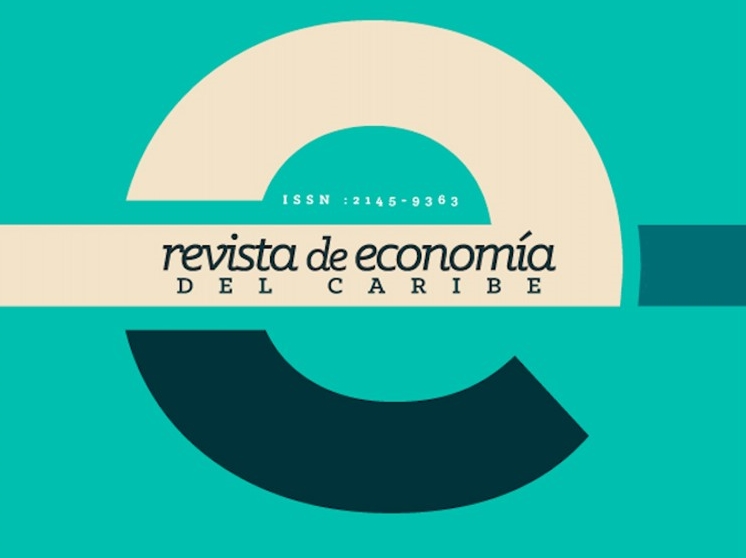Telework: Perception in large and medium-sized companies in the department of Quindío (Colombia)
Keywords:
teleworking, perception of teleworking, digital culture, organizational culture, remote workAbstract
This article aims to analyze the perception that some of the companies in Quindío have regarding the dynamics of teleworking and the effective implementation of this modality. A sample of 71 companies registered in the Chamber of Commerce of the department was taken as of December 2020 and that are classified as medium and large companies. The methodology of this research is quantitative, with an analytical empirical approach and its descriptive type, for the collection of information a survey was carried out on the progress of the organizations in this process, the perception of the leaders and collaborators, dynamics and as a result, It is found that there is a lack of knowledge regarding the subject, its procedures and its benefits, 67 % of the companies have not contemplated teleworking in their strategy, 24 % are clear that they should do it and 6 % have no intention of implementing it. Teleworking had a greater implementation in the administrative areas due to the social isolation caused by covid-19 and this allowed sustainability on many occasions. However, 73 % of those surveyed argue that they do not feel prepared or do not want to continue with teleworking in any of its modalities and consolidate it in their organizational culture. This becomes an opportunity for Universities and the state to lead awareness and training processes in teleworking and digital culture.
References
Ley 1221 de 2008. Julio 16 de 2008. Por la cual se establecen normas para promover y regular el Teletrabajo y se dictan otras disposiciones. Desarrollo Económico de la Presidencia de la República de Colombia. http://www.desarrolloeconomico.gov.co/sites/default/files/marco-legal/Ley-1221-2008.pdf
Ley 2088 de 2021. Por la cual se regula el trabajo en casa y se dictan otras disposiciones. Presidencia de la República de Colombia. https://www.funcionpublica.gov.co/eva/gestornormativo/norma.php?i=162970
MINTIC. Todo lo que debe saber sobre teletrabajo. 2020. https://www.mintic.gov.co/portal/inicio/Sala-de-prensa/Noticias/126148:Todo-lo-que-se-debe-saber-sobre-el-teletrabajo
Martínez, A. M., Pérez, M. P., de Luis Carnicer, M. P., & Jiménez, M. J. V. (2006). Teletrabajo y flexibilidad: efecto moderador sobre los resultados de la empresa. Cuadernos de Economía y Dirección de la Empresa (29), 229-262.
Montelongo, M. D. G., Lobato, B. M., & Yris, C. A. B. (2010). Teletrabajo: ¿Hacia una nueva forma organizacional? Análisis Organizacional, 1.
Montes, P. (2016). Los riesgos del teletrabajo. Bogotá D.C. Obtenido de http://www.inalde.edu.co/sala-de-prensa/articulos/detalle-articulo/ic/los-riesgos-delteletrabajo/icac/show/Content.
MINTIC. 2020. Artículo de información: Colombia superó los 209.000 teletrabajadores en 2020. https://mintic.gov.co/portal/inicio/Sala-de-prensa/179742:Colombia-supero-los-209-000-teletrabajadores-en-2020-Ministerio-de-las-TIC
Omar A. Tapasco-Alzate, Jaime A. Giraldo-García. 2020. Asociación entre posturas administrativas de directivos y su disposición hacia la adopción del teletrabajo. Artículo. https://www.scielo.cl/pdf/infotec/v31n1/0718-0764-infotec-31-01-149.pdf
Matha Luz Benjumea-Arias, Eliana María Villa-Enciso, Jackeline Valencia-Arias. Revista CEA 2016. Beneficios e impactos del teletrabajo en el talento humano. Resultados desde una revisión de literatura. Artículo.
Iheanyi Chuku Egbuta, Brychan Thomas y Said Al-Hasan. 2017. The Contribution of Teleworking towards a Green Computing Environment. Capítulo 68 del libro: Nature-Inspired Computing: Concepts, Methodologies, Tools, and Applications
Stephen P Rubbens y Timothy A. Judge. 2013. Comportamiento Organizacional. Libro. Editorial Pearson Education.
Sánchez, C. P. y Mozo, A. M. 2009. Teletrabajo y vida cotidiana: ventajas y dificultades para la conciliación de la vida laboral, personal y familiar. Athenea Digital. Revista de pensamiento e investigación social.
Diego Guajala Agila, Juan José Pulamarín, Walter Ortiz Palacios, Fausto Vilatuña Correa . 2013. Sensación y percepción en la construcción del conocimiento. Sistema de Información Científica. Red de Revistas Científicas de América Latina, el Caribe, España y Portugal.
Omar A. Tapasco-Alzate, Jaime A. Giraldo-García. 2020. Asociación entre posturas administrativas de directivos y su disposición hacia la adopción del teletrabajo. Artículo. https://www.scielo.cl/scielo.php?script=sci_arttext&pid=S0718-07642020000100149
Desafíos y oportunidades del teletrabajo en América Latina y el Caribe. Informe. Organización Internacional del Trabajo -OIT. 2021.https://www.ilo.org/americas/publicaciones/WCMS_811301/lang--es/index.htm
Downloads
Published
Issue
Section
License
I, ____________________________________________, author of the work and/ or article, adult, residing in the city of _________________, bearing the Identity Card/Passport n.° ______________________, issued in _______________________, in command of his/her/their physical and mental faculties, party hereinafter referred to as AUTHOR, signs the following authorization so the reproduction, publication, communication and distribution of the work can be done, under the following terms:
1. That, regardless of existing legal regulations due to the relationship of the parties to this contract, and any other existing legal presumption, the parties agree that the AUTHOR authorizes the Universidad del Norte, with the purpose of reproduce, publish, communicate and distribute the material called in the Revista de Economía del Caribe.
2. That such authorization apply to the copyright of the work, by any means, known or to be known, the public communication of the work, and the distribution of the work, directly or by third parties, purely educational purposes.
3. The AUTHOR undertakes to inform and declare the existence of this authorization and to preserve the right of the journal Revista de Economía del Caribe to the first publication of the work.
4. The AUTHOR states that the article is original and his/her/their exclusive creation, there being no impediment of any kind for the authorization he/she/they is/are giving, responding thereto by any action: claim, plagiarism or any other type of complaint that might arise about.
5. That such authorization is granted for free.
6. The moral rights of the author on the article correspond exclusively to the AUTHOR, in virtue of which, the Universidad del Norte agrees to expressly and rigorously recognize and respect them.





























